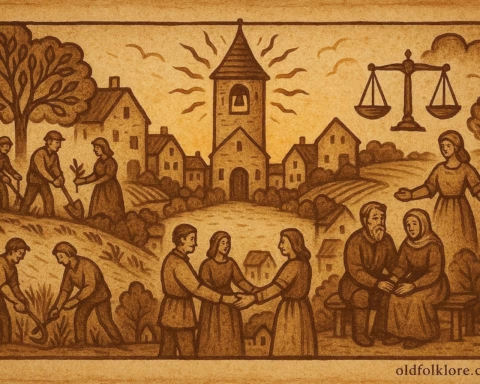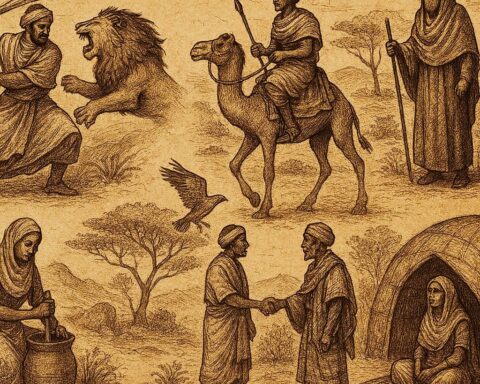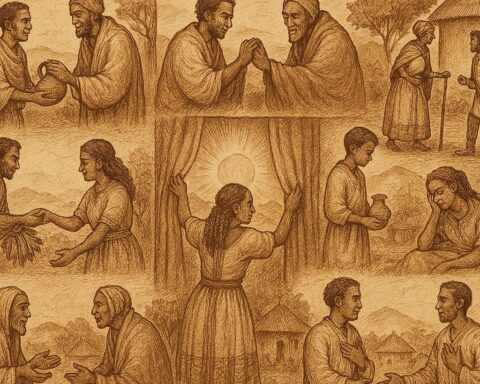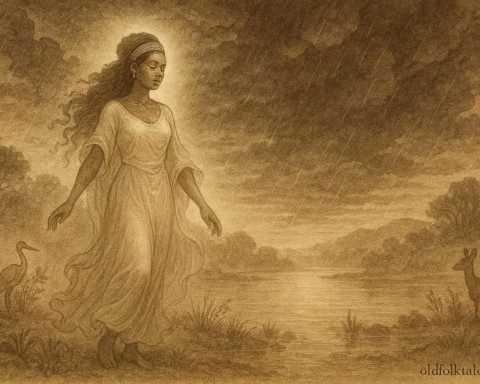In the sweeping expanse of the Sahara, where wind shapes dunes into endless golden waves, the Berber people, also known as the Amazigh, have lived for thousands of years. Their culture thrives in some of the harshest environments on Earth, where survival depends as much on human kindness as it does on skill and endurance.
Among Berber tribes, hospitality is not just courtesy, it is law. In a land where water is rarer than gold and shade is a blessing, turning away a traveler is unthinkable. The desert teaches that every shared sip, every offered meal, every open tent flap is a pact of humanity.
Their proverbs, passed down in Tamazight and Tachelhit, are a blend of poetry, practical survival advice, and moral code. These sayings are living artifacts, carrying the wisdom of nomadic ancestors who roamed from the Atlas Mountains to the deep Sahara.
Below are seven Berber proverbs that reflect the heart of their hospitality and the deep desert wisdom that guides their lives.
“The guest is a gift from God.”
To the Berbers, every traveler is a blessing, not a burden. Welcoming a stranger is seen as a divine opportunity to serve and earn blessings. This belief ensures that no soul is left without shelter in a land where exposure can mean death.
“A house without a guest is like a well without water.”
Hospitality brings life and meaning to a home. Just as a dry well is useless, a home without visitors lacks the flow of stories, news, and shared humanity. The proverb reminds hosts that guests enrich life far beyond material measures.
“In the desert, even the smallest shade is a palace.”
This desert-born wisdom teaches gratitude for small mercies. Whether it’s a lone acacia tree or a cloth tent, any relief from the sun’s relentless heat is a treasure. It encourages people to value the simple gifts that sustain life.
“The mouth that has drunk from your water will speak your name with respect.”
Sharing water in the desert creates a lifelong bond. This saying underscores the idea that generosity leaves a lasting mark on the receiver, often translating into loyalty, protection, and honor in return.
“A loaf shared is a friendship sealed.”
Breaking bread together is a sacred act in Berber culture. Meals are not simply nourishment; they are a binding ritual. This proverb teaches that sharing food is one of the most enduring ways to build trust and kinship.
“The road is long, but the tent of a friend shortens it.”
In the vast Sahara, journeys are grueling. This proverb praises the comfort of knowing a friendly shelter awaits along the way. It reminds us that kindness given to others may one day ease our own travels.
“The desert has no strangers, only friends you haven’t met.”
This encapsulates the Berber spirit of open-heartedness. In their worldview, isolation is an illusion, every encounter holds the potential for connection. It encourages travelers and hosts alike to treat each meeting as the start of a bond.
Cultural Origin
The Berber, or Amazigh, are the indigenous people of North Africa, with roots stretching back thousands of years before Arab influence. Their territories span Morocco, Algeria, Tunisia, Libya, Mali, and Niger. Much of their traditional life revolves around nomadism, camel caravans, and oasis farming. Hospitality developed as a survival necessity, turning away a traveler in the desert was akin to condemning them to death.
These proverbs were born in the context of long nights under the stars, where travelers exchanged stories over mint tea, and in bustling oasis markets where trust determined trade. They are often spoken during greetings, at meals, or as lessons to the young, preserving the moral compass of a people who know that survival and dignity are intertwined.
Knowledge Check
1. What is the meaning of the Berber proverb “The guest is a gift from God”?
It means guests should be welcomed as blessings, and hosting them brings spiritual reward.
2. How does “A house without a guest is like a well without water” reflect Berber culture?
It shows the belief that hospitality brings life and vitality to a home, much like water sustains life.
3. What lesson does “In the desert, even the smallest shade is a palace” teach?
It encourages gratitude for small blessings, especially in harsh environments.
4. Why is sharing water significant in Berber tradition?
Because in the desert, water is life, and giving it creates deep bonds of respect and loyalty.
5. What is the moral of “The road is long, but the tent of a friend shortens it”?
That kindness and friendship can make life’s hardships easier to bear.
6. How do Berber proverbs preserve cultural values?
They pass down lessons on hospitality, generosity, and survival through oral tradition.














